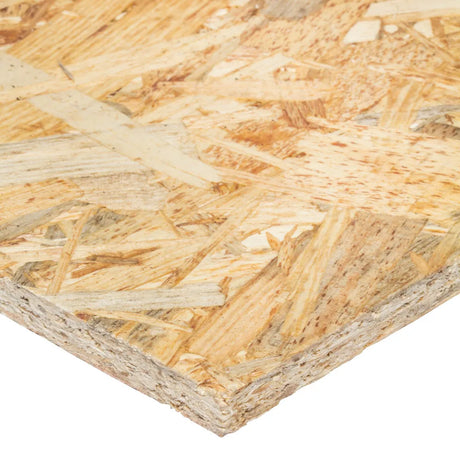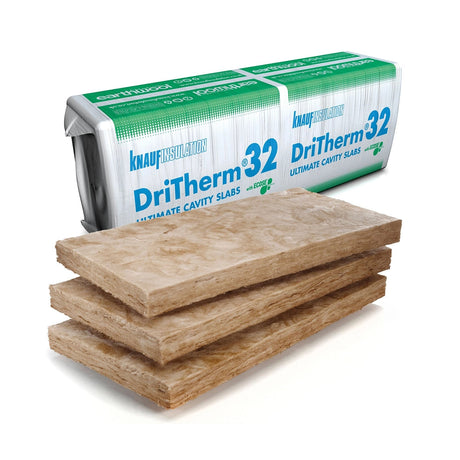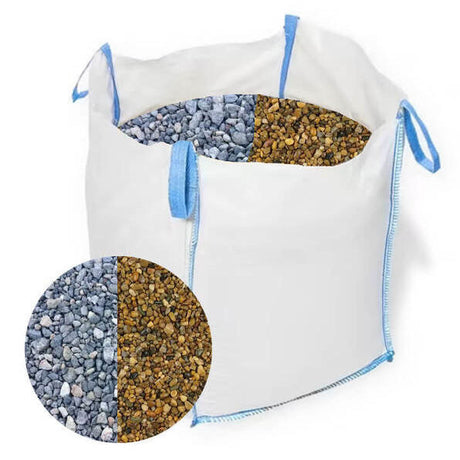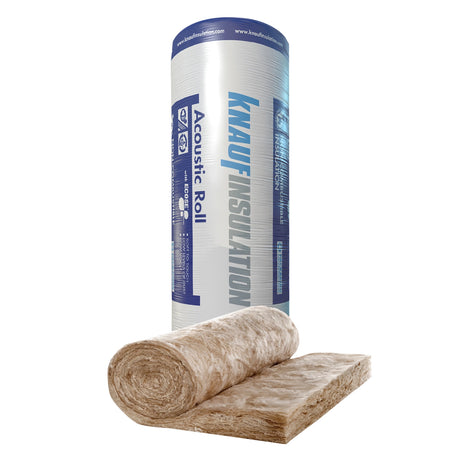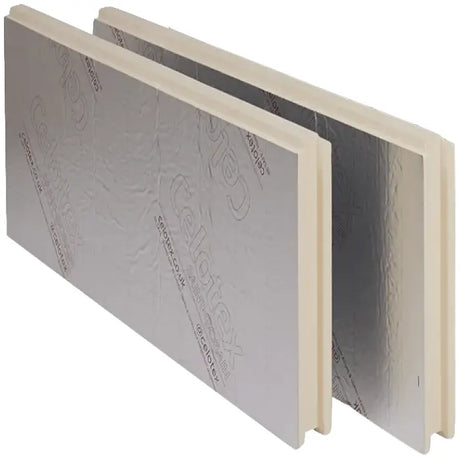When planning your next home renovation or construction project, the question of soundproofing inevitably arises. Perhaps you've experienced the frustration of hearing your neighbour's television through the walls, or maybe you're converting a spare room into a home office and need peace and quiet. At DIY Building Supplies, we've guided countless customers through this exact decision-making process, witnessing firsthand how acoustic plasterboard has emerged as a compelling solution that addresses both noise control and sustainability concerns.
Understanding the Basics
Before delving into environmental credentials, it helps to understand what sets this material apart from standard plasterboard. The distinctive blue facing paper you'll notice on these boards serves as a practical identification system on construction sites, ensuring the right material is installed in the right location.
The fundamental difference lies in density. Where standard plasterboard typically weighs around 8-10 kilograms per square metre, sound-resistant variants achieve weights of 15 kilograms or more. This increased mass forms the cornerstone of its soundproofing capability, creating a physical barrier that requires considerably more energy for sound vibrations to penetrate.
How Sound Control Actually Works
Sound travels as vibrations through air. When these vibrations encounter a surface, three outcomes are possible: absorption, reflection, or transmission. The principle behind effective soundproofing centres on mass – heavier materials vibrate less readily when struck by sound waves, consequently blocking more noise from passing through.
This enhanced density, achieved through specially formulated gypsum cores, enables these boards to resist sound transmission far more effectively than standard alternatives. When properly installed within a comprehensive soundproofing system, quality materials can reduce noise transmission by up to 42 decibels, transforming living and working environments.
The Environmental Case
Natural Foundation Materials
The primary ingredient in these soundproofing boards is gypsum, a naturally occurring mineral that has been forming in the earth for millions of years. Unlike petroleum-based soundproofing alternatives, gypsum doesn't require environmentally damaging extraction processes or release harmful substances during manufacturing.
The processing of gypsum into plasterboard occurs at relatively moderate temperatures, particularly when compared to materials like cement or steel. This lower energy requirement during production contributes to a reduced carbon footprint from the outset. Furthermore, the chemical reactions involved in manufacturing release water vapour rather than harmful emissions, supporting cleaner production cycles.
Manufacturing Innovation from UK Leaders
The manufacturers we work with at DIY Building Supplies – including Knauf, British Gypsum, and Saint-Gobain – have invested substantially in sustainable production methodologies. These companies have transformed their manufacturing processes to incorporate up to 30% recycled content, sourcing post-consumer gypsum from demolition sites and manufacturing off-cuts that would otherwise contribute to landfill waste.
Modern production facilities have embraced energy-efficient technologies, including advanced kiln systems that capture and reuse heat energy. This innovation has reduced overall energy consumption by up to 40% compared to older production methods, demonstrating that environmental responsibility and manufacturing efficiency can progress together.
Comparative Environmental Analysis
To properly evaluate the environmental credentials of acoustic plasterboard, we must consider the alternatives. Mass-loaded vinyl, whilst effective at sound blocking, presents significant environmental concerns as a petroleum-based product. Dense concrete blocks require enormous amounts of energy for manufacturing, combined with substantial transportation emissions.
When we recommend solutions at DIY Building Supplies, we frequently suggest pairing high-density boards with natural insulation materials such as sheep's wool or recycled cellulose fibres. This combination delivers excellent acoustic performance whilst maintaining strong environmental credentials throughout the entire system.
Installation Efficiency and Longevity
Reduced Material Waste
One often-overlooked environmental benefit relates to waste reduction during installation. Precision manufacturing ensures consistent dimensions and properties, resulting in less cutting waste compared to many alternatives. The standardised sizing facilitates better planning accuracy, reducing over-ordering and unnecessary material consumption.
Long-Term Performance Value
High-quality soundproofing systems, when properly installed, can perform reliably for 50 years or more without requiring replacement or significant maintenance. This exceptional longevity proves crucial from an environmental perspective, as it reduces the need for future material consumption and the associated transportation emissions.
Emerging Innovations
Advanced Recycled Content
Progressive manufacturers now produce boards with up to 95% recycled gypsum content, dramatically reducing the environmental impact of new installations. Some innovative products incorporate materials from unexpected sources, including cellulose fibres recovered from recycled paper and cardboard.
Research into bio-based additives continues to yield promising results. Certain manufacturers are experimenting with natural fibres like hemp and flax to enhance sound-blocking properties whilst reducing reliance on synthetic additives.
Thermal Performance Benefits
Quality soundproofing systems often deliver additional environmental advantages through improved thermal performance. The increased mass provides better thermal stability, helping to moderate internal temperature fluctuations and potentially reducing heating and cooling energy requirements.
When combined with appropriate insulation materials, sound-resistant walls can achieve impressive U-values, contributing to overall building energy efficiency. This dual functionality makes it an excellent choice for environmentally conscious builders who want to address multiple performance requirements through a single integrated approach.
Practical Selection Guidance
Understanding your specific performance requirements helps ensure appropriate material selection. For residential applications, 12.5-millimetre thickness often provides excellent results when properly integrated into a complete soundproofing system. For more demanding applications, such as separating walls between flats or commercial spaces, thicker options may prove necessary.
At DIY Building Supplies, our technical team can help you determine the most appropriate solution for your specific circumstances, ensuring you achieve optimal results without unnecessary expenditure or environmental impact. We always emphasise that soundproof boards perform optimally as part of a well-designed system rather than as a standalone solution.
Regulatory Context
UK building regulations continue to evolve in ways that support sustainable construction practices. Part L of the Building Regulations increasingly emphasises whole-building energy performance, whilst Part E addresses acoustic performance specifically, establishing minimum standards for sound insulation between different parts of buildings.
Quality soundproofing systems readily meet these requirements when properly installed, providing peace of mind regarding regulatory compliance whilst delivering the environmental and performance benefits you seek.
Expert Support Makes the Difference
Choosing sustainable soundproofing solutions becomes considerably more straightforward when you have access to knowledgeable technical support. At DIY Building Supplies, our team understands both the performance requirements and environmental considerations that inform material selection for different project types.
We can help you specify the appropriate thickness, recommend compatible sustainable insulation materials, and provide detailed installation guidance to ensure optimal performance. This comprehensive support helps you achieve your soundproofing goals whilst maintaining your environmental commitments, all without the pressure of unnecessary upselling.
When you source materials through DIY Building Supplies, you benefit from our relationships with leading UK manufacturers who prioritise both performance and sustainability. This focus on quality ensures your installation will deliver reliable performance for decades, maximising the environmental benefits of your material choice through extended service life.
Making Your Decision with Confidence
These materials excel in situations requiring noise reduction between rooms, blocking external sounds, or creating quieter environments for work or sleep. They prove particularly valuable when environmental impact matters to you and you want a solution that will last for decades without compromise.
Every soundproofing project presents unique challenges and requirements. Factors such as existing wall construction, the type of noise you're addressing, space constraints, and budget all influence the optimal approach. Our technical team at DIY Building Supplies has helped thousands of customers navigate these decisions, drawing on extensive practical experience to recommend solutions that work for specific circumstances.
Reaching Your Conclusion
The question of whether acoustic plasterboard represents an eco-friendly solution for sustainable soundproofing can be answered with confidence: it does. Through innovative manufacturing processes, increased recycled content, and integration with other sustainable materials, today's products offer compelling solutions for environmentally conscious soundproofing projects.
The combination of proven performance, environmental benefits, and long-term durability makes this material an intelligent choice for both DIY enthusiasts and professional contractors. When properly specified and installed as part of a comprehensive system, it delivers the quiet, comfortable environments you need whilst supporting your sustainability objectives.
At DIY Building Supplies, we're committed to helping you navigate these material choices with confidence. We understand that every successful project begins with the right materials and the right support – and we're here to provide both. For more information about sustainable soundproofing solutions, contact our technical team. We're always happy to have a straightforward conversation about what might work best for your situation, without complicated jargon or pressure.



